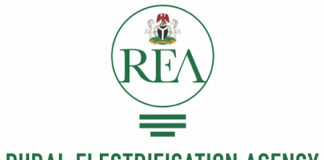The presidential candidate of the Peoples Democratic Party (PDP) in the just concluded general election, Atiku Abubakar, yesterday tendered additional 26,175 documents to prove his petition against President Muhammadu Buhari’s victory in the February 23 poll.
The documents were tendered by his lead counsel, Dr. Levy Uzoukwu, SAN at the proceedings of the hearing of the petition of Atiku and PDP against Buhari’s re-election.
Only yesterday, the petitioners at the commencement of hearing in the petition tendered 5,196 documents from Niger and Yobe states in their bid to substantiate their claims of alleged rigging of the outcome of the February 23 presidential poll in favour of the incumbent president.
The documents tendered included election results of units, wards and local government areas as well as receipt for certification of documents from the Independent National Electoral Commission (INEC).
Presiding Justice of the five member panel, Justice Mohammed Garba admitted the tendered documents as exhibits after the respondents registered their objections against the admissibility of the documents particularly the receipts which they claimed contained some attachment.
The petitioners have so far tendered 31,371 documents from 10 states among states of the federation where they alleged substantial fraud in the February 23 presidential election. Though the petitioners said they were yet to conclude tendering documents from Kano State.
The eight states whose documents were tendered are Katsina, Kebbi, Borno, Jigawa, Gombe, Bauchi, Kaduna and partly Kano.
A breakdown of the documents indicated that 3378 came from Katsina; 2106 came from Kebbi; 3472 from Borno; 3162 from Jigawa; 1912 from Gombe; 3539 from Bauchi; 3335, from Kaduna and 5271 came from Kano.
Uzoukwu however informed the panel that the remaining documents from Kano state would be brought on Monday, the next adjourned date, adding that the petitioners will call their witnesses immediately they are through with the documents.
Recall that the tribunal in line with agreement reached by parties, allotted 10 days instead of the 14 days provided by the law for the petitioners to establish their claim of rigging, substantial non-compliance with the electoral laws, violence among other allegations against the February 23 poll.
Atiku and PDP at the close of the pre-hearing session said they hoped to call up to 400 witnesses to prove their case against the declaration of President Buhari as winner of the presidential poll.
Recall that the tribunal in line with agreement reached by parties, allotted 10 days instead of the 14 days provided by the law for the petitioners to establish their claim of rigging, substantial non-compliance with the electoral laws, violence among other allegations against the February 23 poll.
Atiku and PDP at the close of the pre-hearing session said they hoped to call up to 400 witnesses to prove their case against the declaration of President Buhari as winner of the presidential poll.
The Independent National Electoral Commission had last February declared Buhari winner of the Presidential election.
Following the declaration, Atiku and his party approached the tribunal to nullify Buhari’s election on the grounds of alleged malpractices and gross violation of Electoral Act 2010, as amended.
Atiku in his petition specifically asked the tribunal to disqualify Buhari as winner of the February 23 presidential election on the grounds that he (Buhari) did not possess the requisite academic qualification to contest for the office of President.
The petition which was premised on five grounds, alleged that Buhari lied about his academic qualification as well as schools attended in his form 001 submitted to INEC for the purpose of contesting the 2019 presidential election.
Atiku and PDP had filed their petition against the outcome of the election at the Presidential Election Petition Tribunal (PEPT) in Abuja, on March 18, 2019.
Meanwhile, the tribunal has adjourned further hearing in the petition till Monday, July 8, 2019.
Meanwhile, the tribunal has adjourned further hearing in the petition till Monday, July 8, 2019.
In attendance at proceedings yesterday were Vice Presidential candidate of the PDP in the election, Peter Obi, a chieftain of the PDP and Chairman Emeritus of DAAR Communication Plc, Chief Raymond Dokpesi on the side of the petitioners, while former Chairman of the Economic and Financial Crimes Commission (EFCC) and chieftain of the APC, Nuhu Ribadu stood for Buhari and the APC.












